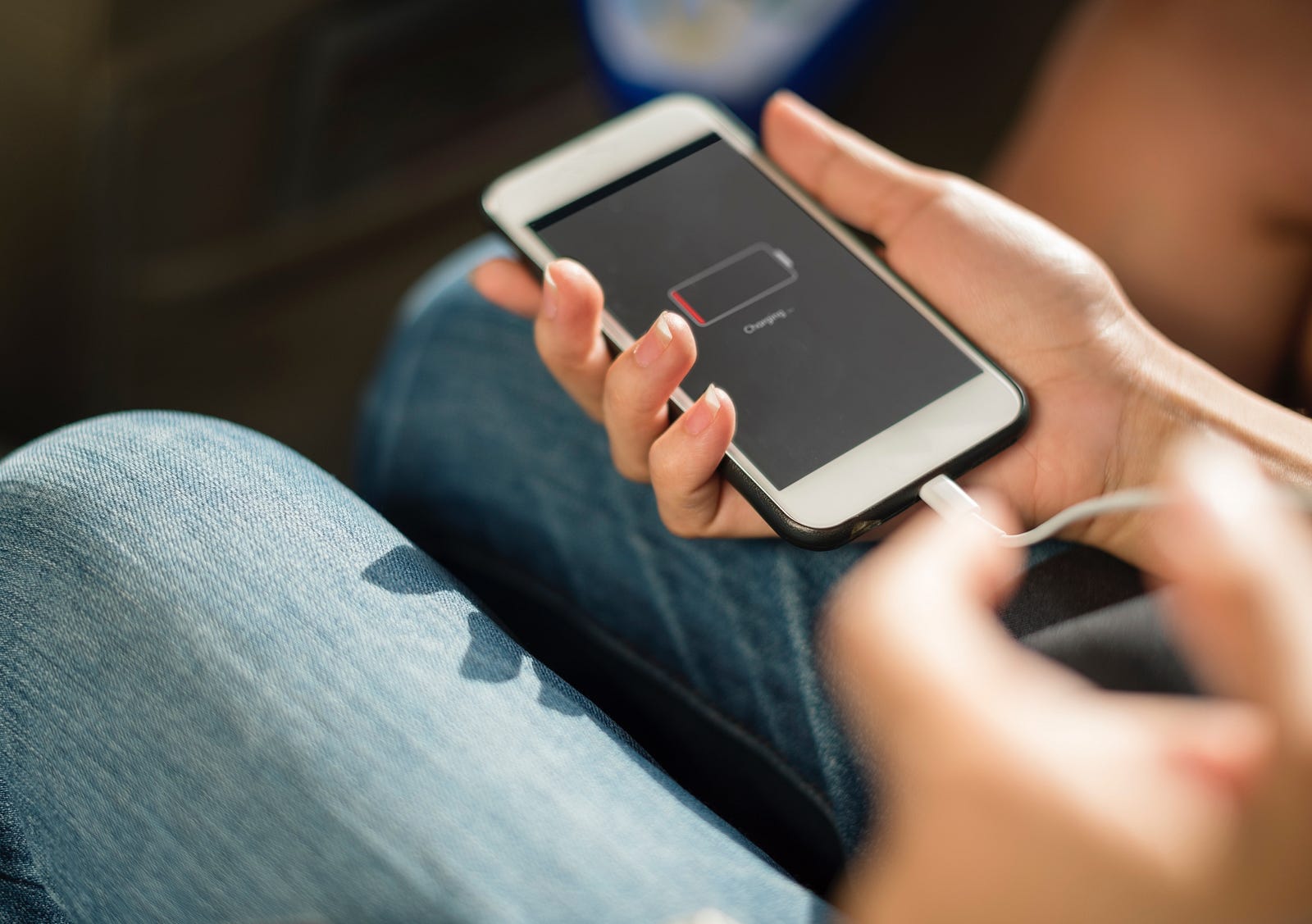Social Media is the New Tobacco

A little while ago I wrote about creating space for your mind to process thoughts and feelings, the premise was that we simply don’t make any time for this anymore. In reflecting about this, and researching further, I’ve realized the problem is actually far worse and that a lack of mental space is just the beginning. To quote Tristan Harris:
“Technology is hijacking the evolutionary vulnerabilities of the human mind to control human attention.”
It’s completely out of control.
I know it sounds hyperbolized to say that social media is the new tobacco, but bear with me. The analogy is frighteningly accurate the more you explore it.
1) It’s Exceptionally Addictive
Remember all the scientific studies that started coming out showing nicotine was more addictive than heroine?
There are now multiple studies discussing how addictive Facebook is. In one study, it discusses how Facebook triggers the same regions of your brain as cocaine and gambling. A more recent study showed that Facebook is actually more addictive than nicotine, even finding that merely seeing the Facebook logo can trigger ‘spontaneous pleasure cravings’.
Facebook is being singled out in many of the studies, mostly because it’s pioneering in the space and has the largest user base, but platforms like Snapchat, Instagram, Netflix and Twitter have the same affects and can be just as addictive.
These studies date back to 2013, so it’s not like this is new information. Yet, we’re ignoring the warnings.
2) These companies are working hard to make their products MORE ADDICTIVE every day.
Remember how tobacco companies were (and still are) putting all sorts of chemicals in their products to make them even more addictive?
Facebook, Snapchat, Instagram, Netflix and Twitter spend hundreds millions of dollars per year trying to do one thing: increase the time you spend on their apps and websites. They call it stickiness, or one of dozens of acronyms to describe addictive user behavior. They brag about stats like their DAU’s (or Daily Active Users aka zombie customers), in their quarterly shareholders meetings. Facebook’s share price goes up the more we get addicted, and the more they can charge advertisers to get in front of our eyeballs.
The news media websites and news aggregator apps are just as bad. They are designed to keep us flipping through content until our brains are numb. The headlines are “optimized” to hook us in to clicking on stories feverishly. While hyperbolic headlines are an age-old technique of the news media industry, the internet inadvertently weaponized this trick by putting these clickbait headlines in our pockets 24/7 in infinite quantities. The disaster that is the Trump Administration has created a boon for sites like Wall Street Journal, CNN and the New York Times. NYT has reported record numbers and all-time highs for new subscribers since Trump was elected.
The news outlets recycle and regurgitate the same content over and over through every minute of every day in a race to the bottom for our attention. Politics, the supposed foundation of our society, has been reduced to a 24/7 reality show, where any statement longer than 30 seconds is ignored or dumbed down to a soundbite. Each new gun massacre is a 5 day marathon of Scandal that always seems to conclude with a “To Be Continued..” instead of any productive outcomes, pressure or call to action. The events of our countries and the world are being distorted, and sensationalized for profits while the anxiety level of our society reaches the breaking point.
3) It’s not just addictive, it’s really bad for us.
So you could say, “so what if I’m addicted to Facebook, it’s not like it’s bad for me!” But you’d be wrong. Studies are also showing that Facebook makes you feel worse the more you use it. It’s causing increasing rates of depression and anti-social behavior. Here’s a quote from the Harvard Business Review article linked above:
Prior research has shown that the use of social media may detract from face-to-face relationships, reduce investment in meaningful activities, increase sedentary behavior by encouraging more screen time, lead to internet addiction, and erode self-esteem through unfavorable social comparison.
Yet. We. Log. In. Everyday. On average we spend over TWO HOURS on social media sites a day, up 50% from 2012.

4) The science is in, and we’re still doing it.
Remember when it finally became obvious that smoking was out and you started feeling guilty for sneaking out to do it?
If you mention any of the studies mentioned in this article, people will nod their heads sheepishly and acknowledge they’ve seen the same articles. Yet we are all still glued to our phones, even in social situations. We all talk a good game about what we’re trying to do less of, or how we’re better than so and so, but for the most part everyone I know has some level of addiction issues with technology.
5) The guys that started all these sites have known it all along.
Sean Parker, who joined Facebook as their first President just five months in, made it very clear to Axios:
The thought process behind building the social media giant was: “How do we consume as much of your time and conscious attention as possible?”
“That means that we needed to sort of give you a little dopamine hit every once in a while because someone liked or commented on a photo or a post or whatever … It’s a social validation feedback loop … You’re exploiting a vulnerability in human psychology … [The inventors] understood this, consciously, and we did it anyway.”
Later, he was quoted as saying:
“God only knows what it’s doing to our children’s brains”
Netflix CEO Reed Hastings discussing how the company’s approach to television is..
“..really about binge viewing. It’s the ability to just get hooked and watch episode after episode. It’s addictive. It’s exciting. It’s different. And our release strategy for original content emphasizes that brand strength, which is to be able to get hooked and pour through those episodes rather than get strung out.”
Literally using analogies to heroin use in his comment.
Tristan Harris, former Google employee, in a widely shared Medium post in 2016:
“If you’re an app, how do you keep people hooked? Turn yourself into a slot machine,”
Remind you of any other industries yet?
5) All of this is being done to make a very small group of people rich.
The Big Six tobacco companies collect over $35 billion in profit annually ($1000 per second). In American tech, there is a “Big Six” as well: Apple, Microsoft, Amazon, Google (Alphabet), Facebook and Netflix. Combined they generated $25 Billion in profit LAST QUARTER. Netflix’s quarterly profit grew 500% year over year.
Over and over, we idolize the founders of these companies and chatter about their share price, ignoring their increasingly negative impact on our society.
Listen to this excerpt from Wired Magazine back in 2013, discussing Netflix’s binge watching strategy:
..just one month ago, Netflix was touting its House of Cards “binge watching” strategy of original content released all at once. Not only did people really gorge on a bunch of episodes, but Netflix shares were up 19 percent after its last earnings report.
Notice how they excitedly mention their customer’s addictive behavior in the same sentence about their rise in share price?
The thing we fail to grasp is that these companies share prices are actually trading in our personal time and attention.
The thing we fail to grasp is that these companies share prices are actually trading in our personal time and attention. They are trading in the precious minutes of our day that we could otherwise be spending with friends or learning a new skill or resting and recharging our brains. They are competing for the moments at the dinner table with our families, or in bed with our husbands and wives, or at the park with our children.
The other asset they are trading in is our data. The events, moments, information and memories of our lives.
A very small group of people now control the time and mindspace of billions of people and are making more money than anyone in history because of it. When they win, we lose as a society.
At least we didn’t let kids smoke.
Even in the era when smoking was a social norm, we didn’t let our children do it yet we’re letting our teens spend virtually all day on social media.
With the rapid innovation and adoption of the internet, social media and smart devices, we haven’t had time to consider the consequences these changes might have on brains, emotions and, ultimately, our society. We have been so enamored by the sheen of the digital era, we’re only now starting to realize the affects. In the meantime, we’ve allowed whole generations of children and teenagers to embrace it all fully, even more so than adult generations.
While average time on social media is over 2 hours a day, teens are actually reportedly spending as much as 9 hours a day on social media, more time then they spend sleeping.
Steve Jobs and Bill Gates are both known for cautiously limiting their own children’s exposure to technology and devices while becoming the richest and most powerful people on the planet selling the digital revolution.
Asking whether his children liked the new device, Jobs replied: “They haven’t used it. We limit how much technology our kids use at home.”
Yet we’re exposing entire young generations of our society to this new world while their brains are still forming and developing. We let our teenagers spend the majority of their waking hours online, and our toddlers mash their chubby little hands on iPad screens. The truth is, as parents we’re fighting to come to terms with our own addictions and the attention to our families it’s robbing from us daily.
So where do we go from here?
We need to address our own addictions and break the cycle. Real talk here, we have a serious drug problem. It’s called Dopamine, and we get it from social media and the internet. We need to call it what it is and then cut this shit out. I’m not advocating to shut off the internet. We need to be intelligent about how we use our time and give away our attention. There is a lot of incredible information that can educate you and make your life easier on the internet. We just need to stop binging on the junk food of the internet.

We need to talk openly with one another about what’s going on. We need to be brave, humble and supportive of one another as we come to terms with what’s happening here.
We need to reject a news media that refuses to put the safety, education and well being of our society above profits.
We need to stop talking about these company’s financial performance in the abstract as if it’s not directly connected to a dramatically negative and dangerous behavior change in our society the past five years. We need to start holding these companies accountable and stop blindly giving them our attention and money.
Finally, we need to address how we’re exposing our children to this epidemic. As adults, we have the benefit of a fully formed brain and the best chance of breaking the cycle of addiction. Our children and teens are still early in their mental development and are the most exposed and at risk. Put your phone down and talk your kids and create boundaries.
Read my piece on creating space in your day for ideas about how to start breaking the addiction cycle.

No comments:
Post a Comment